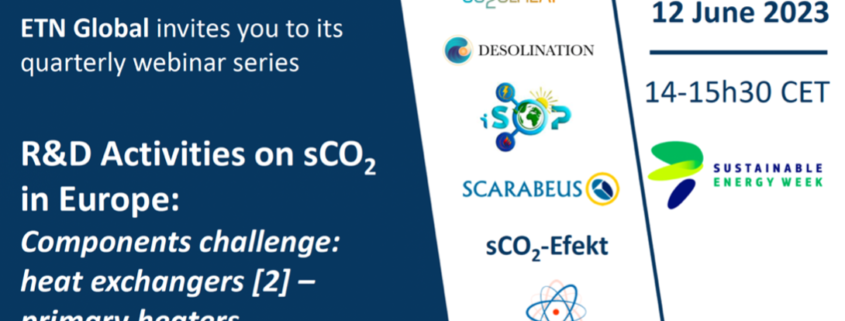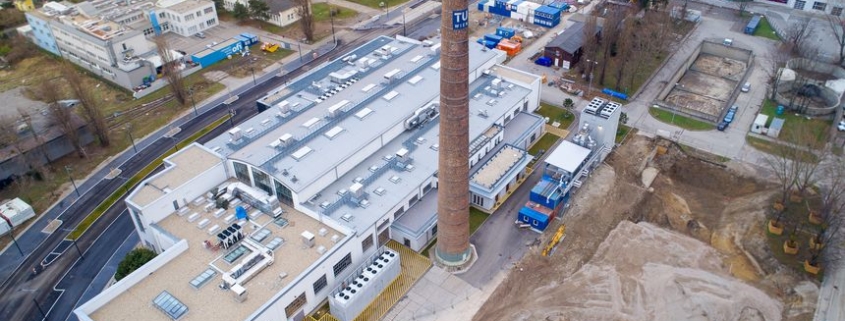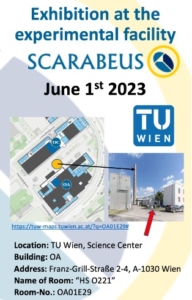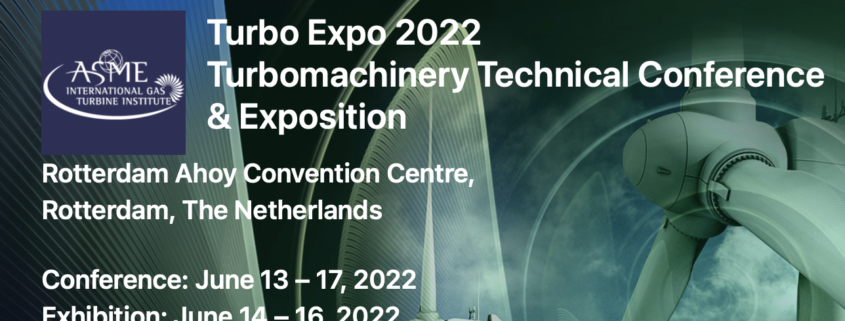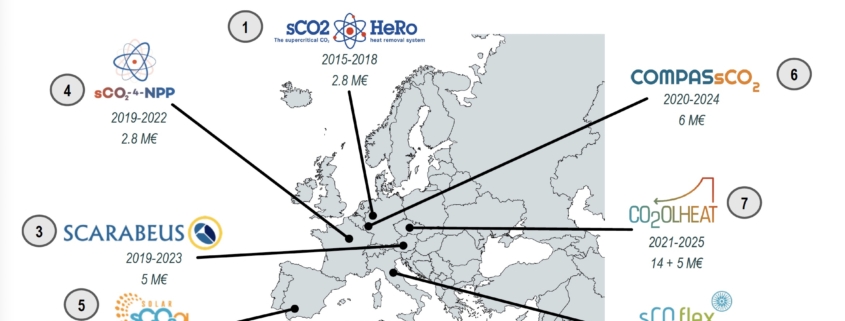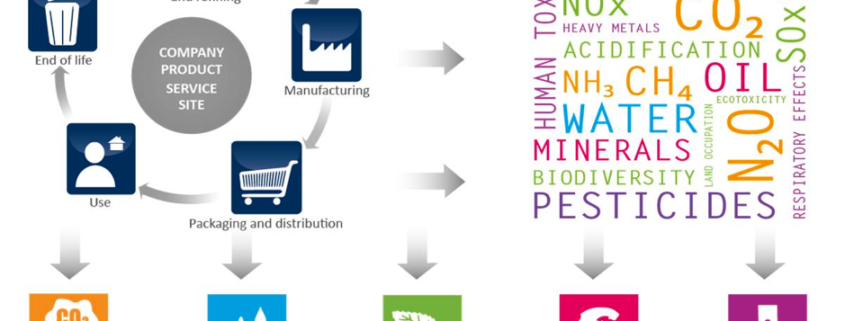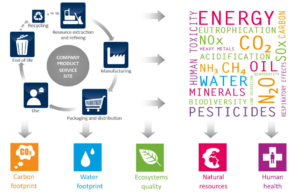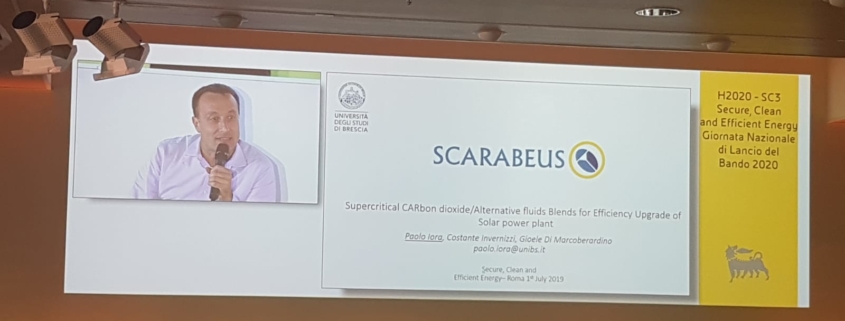Presentations of ETN’s fourth episode of the webinar series on R& Activities on sCO2 in Europe already available
We are very glad to announce that the presentations of the 4th webinar on R&D Activities on sCO2 Activities in Europe are now available for download.
Organised by ETN Global, coordinator of the CO2OLHEAT Project, this last event was focused on heat exchanger technology, since heat exchangers are core equipment of sCO2 systems with an expectedly strong impact on Capital Costs and performance. It is to note that event was part of the European Sustainable Energy Week (EUSEW), as a Sustainable Energy Day.
These are the talks that we had the opportunity to enjoy:
- CFD-aided conceptual design of a cooler in sCO2 cycles for novel waste-heat-to-power (WH2P) plant layouts, Panagiotis Drosatos (CERTH)
- Development of a high-efficiency particle-sCO2 heat exchanger for CSP applications, Maxime Rouzès (John Cockerill)
- How additive manufacturing will help the energy sector: application to the primary heat exchanger in a sCO2 cycle, Damien Serret (TEMISTH)
Follow this link to get your copy of the presentations: Link

